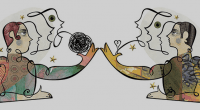Crackdown in Turkey passes the point of no return

Date posted: November 11, 2016
David Gardner
Recep Tayyip Erdogan, the sultan-like leader who over the past three years has twisted Turkey’s national interests around his ambition of unbounded one-man rule, was entitled to the benefit of the doubt after the botched military putsch against his elected government in July. The trauma of the coup was such, moreover, that virtually all opponents of the president’s neo-Islamist Justice and Development party (AKP) stood with him against the plotters, flooding into the streets to confound them.
A statesman would have seized this outpouring of national unity in a divided country to forge a compact for a reinvigorated republic — at ease with its Sunni Muslim identity and its ethno-sectarian diversity, embracing in particular the Kurds and the Alevi Shia, minorities of more than 15 per cent of the population. Not Mr Erdogan.
The post-coup crackdown has been of a scale to suggest that while the state had been deeply penetrated by followers of Fethullah Gulen, the AKP’s erstwhile Islamist allies, he is using this as an alibi to purge liberal and secular opponents. The president’s emergency rule by decree is a bulldozer, flattening independent inquiry and dissent. This is a systemic assault on the last bastions of the secular republic built by Mustafa Kemal Ataturk from the ruins of the Ottoman Empire in 1923.
Last week, the government arrested the editor and senior staff of Cumhuriyet, a secular newspaper whose Kemalist roots make it almost consubstantial with the republic. Its editor-in-chief, Can Dundar, is already in exile in Germany, fleeing an “espionage” conviction after publishing court details of gun-running to Syrian jihadis by Turkey’s spy service. Last week’s indictments sound just as ludicrous, accusing the journalists of giving succour to the Gulenist “terrorists” the government says were behind the coup, and the Kurdistan Workers’ party (PKK) insurgency in Turkey’s south-east.
An already steady stream of media purges turned into a cascade after coup attempt. More than 130 outlets have been closed, some 120 journalists jailed, scores have fled abroad and almost 2,000 have been fired. Cumhuriyet was the last independent paper standing. The charges against it are preposterous.
The paper gave serial offence by warning Mr Erdogan that his party’s pre-2013 alliance with the Gulen cult was a pact with the devil. The original bone of contention between the two Islamist camps, furthermore, was over Mr Erdogan’s now abandoned peace overtures to the PKK and the Kurds, to which the Gulenists were implacably opposed. Yet the government’s claim is that Cumhuriyet is a stooge of both the Gulenists and the PKK.
The price of all this is high. Millions of Kurds who voted HDP are being driven back into the arms of the PKK gunmen
Or take the case of Kadri Gursel, a columnist on the paper, jailed last week. Mr Gursel, a secularist with no affinity to Gulenism or the PKK, is one of a handful of people who warned against a coup. But he was shocked when it happened, and almost half Turkey’s generals were arrested. He told me in September that “it is very hard for us to grasp that our national army was in fact someone else’s army”. He was also once kidnapped and held hostage by the PKK. Mr Gursel’s real crime, for which he was fired after 17 years with Milliyet newspaper in July 2015 and charged with defaming Mr Erdogan, was a disobliging tweet on Turkey’s failed policy in Syria.
Having stilled dissonant voices in the media, it was predictable that the president would in the same week seize control of Turkey’s universities, giving himself the power to select all rectors, and crush the People’s Democratic party (HDP), the pro-Kurdish coalition, arresting its charismatic leader, Selahattin Demirtas, his party co-chair and 10 MPs. Mr Erdogan is clearing his way to a referendum next spring on an executive presidency, probably followed by another general election.
The HDP’s parliamentary breakthrough in last year’s elections denied Mr Erdogan the numbers he needs to call a plebiscite. He has painted it as a PKK wolf in sheep’s clothing, the better to co-opt the far-right Nationalist Movement (MHP) party. This tactic won back the parliamentary majority the AKP briefly lost last year.
Mr Erdogan is taking matters recklessly further, claiming Ankara’s right to intervene in Iraq and Syria with irredentist language, harking back to Turkey’s post-independence claims in these former Ottoman lands.
Mainly he wants to halt the advance of Kurds in both places, even though they provide the US with its most reliable fighters. The price of all this is high. Millions of Kurds who voted HDP are being driven back into the arms of the PKK gunmen.
Turkey’s alliances with the US and EU are fraying badly. Above all, Mr Erdogan is moulding the country in his own image, with only a uniform message allowed. As one liberal intellectual puts it: “In the past you got arrested for what you said, but now you can be arrested for what you don’t say.”
Source: Financial Times , November 8, 2016
Tags: Democracy | Freedoms | Military coups in Turkey | Persecution of Hizmet by Erdogan | Turkey |
























